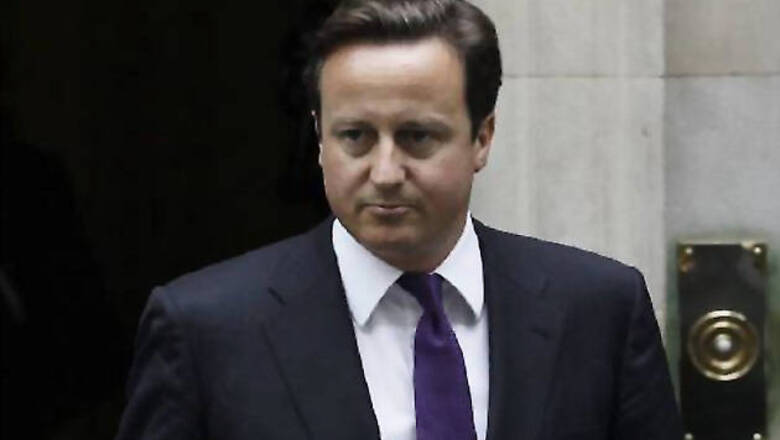
views
London: British Prime Minister David Cameron is set to deliver his hotly anticipated speech about his plans for Britain's membership of the European Union this week, Foreign Secretary William Hague said on Sunday. After months of speculation, Cameron had been scheduled to deliver the speech on Friday in the Netherlands, but it was postponed because of a hostage crisis involving Britons at a gas plant in Algeria.
"It will happen in the coming week. We will make an announcement about exactly when and where tomorrow," Hague told the BBC. In the speech, Cameron is expected to spell out his plans for Britain's membership of the 27-nation bloc and to promise to put any deal he struck to the British people in a referendum.
According to excerpts of the planned speech that were released before the decision to postpone it, Cameron will say that Britain will drift out of the EU and the European project will fail unless the bloc tackles three major problems. The excerpts identified these as the euro zone debt crisis, faltering competitiveness and declining public support.
Some critics say a referendum on Britain's membership of the EU would be a reckless gamble with the country's future economic prospects and place in the world. They accuse Cameron of taking a huge risk in order to placate hardline eurosceptics in his Conservative Party who are worried about an electoral threat from the UK Independence Party (UKIP), which campaigns for an exit from the bloc.
Appearing on a BBC television political programme on Sunday morning alongside UKIP leader Nigel Farage, Hague rejected the suggestion that Cameron's speech was all about Conservatives "running scared" from the UKIP threat. "No, it's about doing what is best in the interests of this country and of course also about democracy in this country," Hague said.
"We want to get a better relationship with the European Union. There are changes we want in that relationship. But we also need to see how the changes in the euro zone are affecting the European Union, how that affects this country and the relationship of the countries of the EU together."
"When we have done those things there is a strong case for fresh consent in this country, for the people of this country having their say." Farage suggested that the idea of a long-drawn-out renegotiation of the terms of membership followed by a referendum years away was a convoluted way to try and keep Britain within the bloc against the wishes of the people.
"We'll get the speech, and then the Conservative Party will launch a five-year campaign to try and keep us in the European Union," he said. "What Mr Cameron ought to do is say: 'Right we're going to have a full, free and fair referendum on this before the next general election.'"




















Comments
0 comment